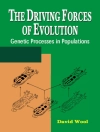CHRISTOPH REHMANN-SUTTER, MARCUS DÜWELL, DIETMAR MIETH When we placed “finitude”, “limits of human existence” as a motto over a round of discussion on biomedicine and bioethics (which led to this collection of essays) we did not know how far this would lead us into methodological quandaries. However, we felt intuitively that an interdisciplinary approach including social and cultural sciences would have an advantage over a solely disciplinary (philosophical or theological) analysis. Bioethics, if it is to have adequate discriminatory power, should include sensitivity to the cultural contexts of biomedicine, and also to the cultural contexts of bioethics itself. Context awareness, of course, is not foreign to philosophical or theological bioethics, for the simple reason that the issues tackled in the debates (as in other fields of ethics) could not be adequately understood outside their contexts. Moral issues are always accompanied by contexts. When we try to unpack them – which is necessary to make them accessible to ethical discussion – we are regularly confronted with the fact that in removing too much of the context we do not clarify an issue, but make it less comprehensible. The context – at least some essential parts of it – is intrinsic to the issue. Unpacking in ethics is therefore a different procedure. It does not mean peeling the context off, but rather identifying which contextual elements are essential for an understanding of the key moral aspects of the issue, and explaining how they establish its particular character.
Table of Content
Fundamental Aspects.- HISTORY AND FUTURE OF BIOETHICS.- THE NEED FOR ETHICAL EVALUATION IN BIOMEDICINE AND BIOPOLITICS.- FINITUDE – A NEGLECTED PERSPECTIVE IN BIOETHICS.- LIMITS OF BIOETHICS.- THE PROBLEM OF LIMITS OF LAW IN BIOETHICAL ISSUES.- Classical Approaches.- ONE MORAL PRINCIPLE OR MANY!.- DANGER AND MERITS OF PRINCIPLISM Meta-theoretical Reflections on the Beauchamp/Childress- Approach to Biomedical Ethics.- THE JOURNEY FROM ETHICS TO LAW The Case of Euthanasia.- RECOGNITION AND RESPECT FOR PERSONS A Personalistic Interpretation of Kant’s Categorical Imperative.- RATIONALITY IN BIOETHICS Reasonable Adjudication in a Life and Death Case of the Separation of Conjoined Twins1.- Culture and Society.- THE PUBLIC ROLE OF BIOETHICS AND THE ROLE OF THE PUBLIC.- EXPERTS ON BIOETHICS IN BIOPOLITICS.- THE CONTRIBUTION OF MEDICAL HISTORY TO MEDICAL ETHICS The Case of Brain Death.- ALTERNATIVE MEDICINE A Dispute on Truth, Power or Money?.- DIMENSIONS OF CULTURAL DIVERSITY OF MEDICAL ETHICS.- Body and Identity.- BODY, PERCEPTION AND IDENTITY.- DISABLED EMBODIMENT AND AN ETHIC OF CARE.- COPING WITH LIMITS Two Strategies and their Anthropological and Ethical Implications.- Innovative Modes of Analysis.- WHAT CAN THE SOCIAL SCIENCES CONTRIBUTE TO THE STUDY OF ETHICS? Theoretical, Empirical and Substantive Considerations1.- DISCOURSE ETHICS Apel, Habermas, and Beyond.- THE CONCEPT OF CARE ETHICS IN BIOMEDICINE The Case of Disability.- THE THICK SOCIAL MATRIX FOR BIOETHICS Anthropological Approaches.- NARRATIVE BIOETHICS1.












